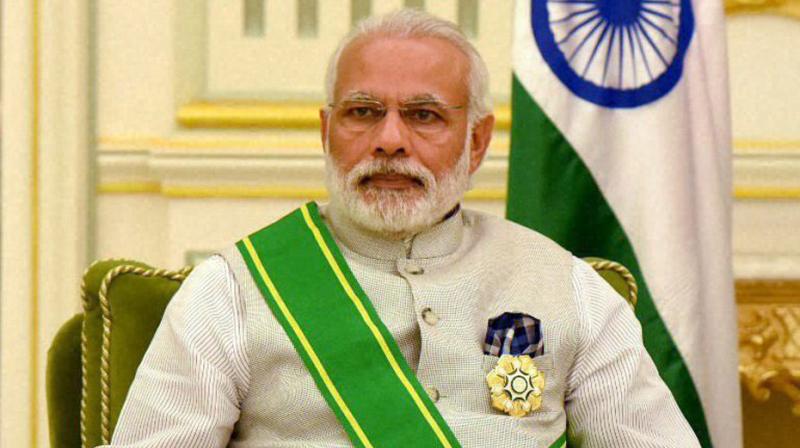Opposition & Modi: Will friction grow?

Exactly at the halfway mark of the Narendra Modi government’s term, the demand for the Prime Minister’s resignation was placed on the table Tuesday by a collective of Opposition parties in the forefront of which is the Congress, that initiated the move, in collaboration with West Bengal chief minister Mamata Banerjee’s Trinamul Congress. Whatever the optics, the BJP is evidently watching the issue carefully and is likely to take all measures it can to ward off the demand from snowballing.
The government fielded law minister Ravishankar Prasad, an able speaker and organiser with a fine-tuned political sense, to head off the Opposition’s effort in its infancy. Mr Prasad’s opening volley was to make fun of the exercise by proposing that the balloon of Opposition unity had already burst as many significant non-BJP parties — including the JD(U), led by Bihar chief minister Nitish Kumar; the SP and BSP, two important parties in Uttar Pradesh; the Left; and Sharad Pawar’s NCP — had skipped the meeting and joint press conference led by Rahul Gandhi and Mamata Banerjee.
This is the mantra playing in the media as well — thanks to the BJP’s deft political and media management — but the problem is that the issue is not about Opposition unity, it is rather the demand for the resignation of the Prime Minister.
Such a demand had not been brought to the table in the form of a proposed political campaign even after the Bofors-related tumult aimed at then PM Rajiv Gandhi, which eventually claimed his scalp in the Lok Sabha elections that followed.
The next Lok Sabha polls are two and a half years away. It is hard to say what the country’s political landscape will be then. A good deal may depend on the coming polls in UP, Punjab and some other states in the months ahead. But not a little will depend on whether the group of Opposition parties visible on Tuesday coheres, and if it can gain adherents and pitch its appeal to the public.
The issues at stake are serious enough. The first point, underscored by Mr Gandhi, relates to the allegation about the Prime Minister’s personal corruption when he was CM of Gujarat, as disclosed in the Birla and Sahara group documents which are with the income-tax department. The other vital question, stressed by Ms Banerjee, is the failure of the demonetisation move as the Prime Minister had asked for 50 days in which to unearth black money circulating in India, but the mess arising from this disastrous move has caused the highlighting of extremely poor economic management which has hurt the poor the most.
Together, these questions make a potentially volatile political cocktail. Much would depend on how all sides respond.

